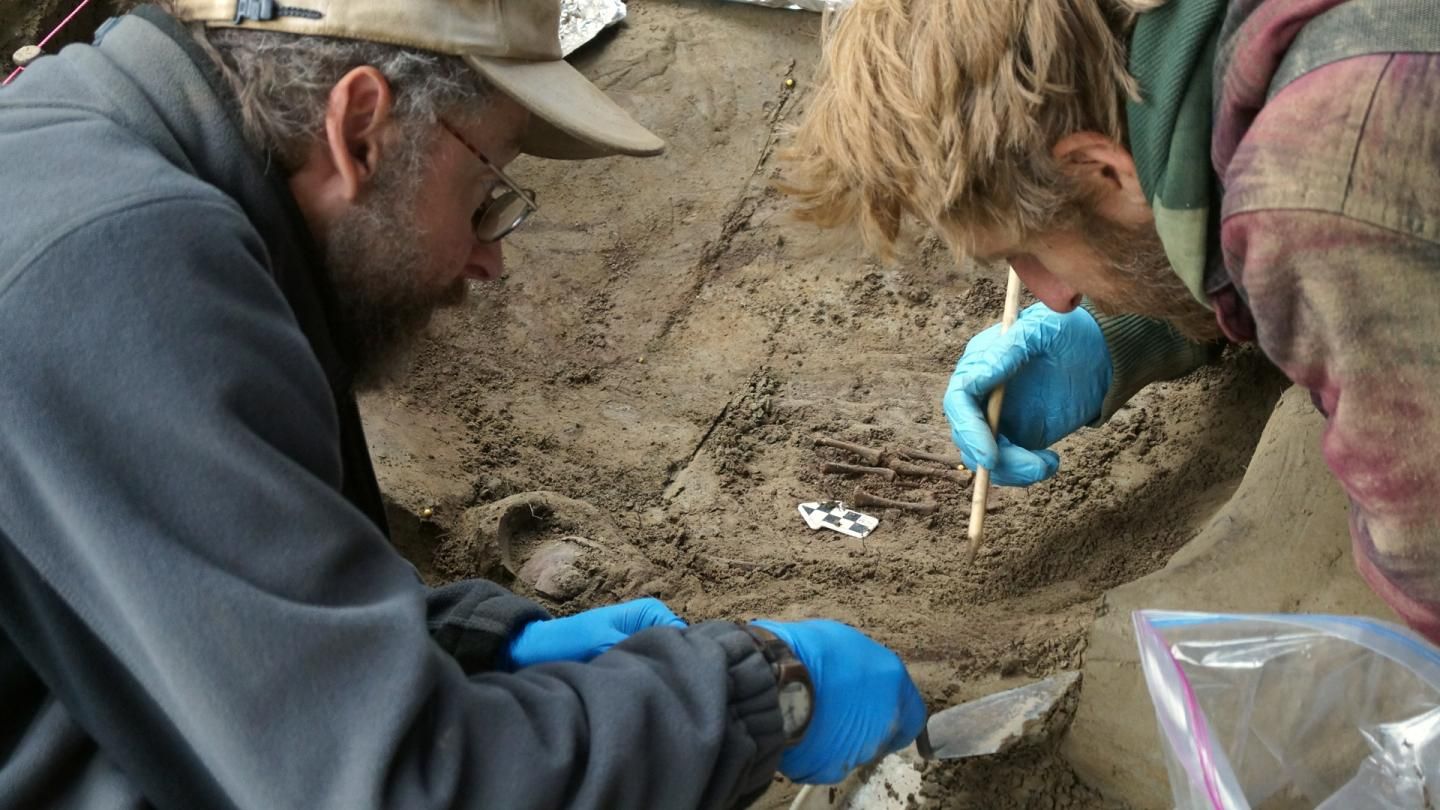
A recent discovery of infant skeletons in Alaska has provided researchers with a first glimpse of funeral practices 11,500 years ago. Grieving Ice Age parents, like many of their counterparts today, buried their children with care, ritual and adornment.
In 2013, archaeologists in rural Alaska uncovered the burial site of two infants, possibly twins, who died during the Ice Age approximately 11,500 years ago. They were the offspring of some of the first settlers of North America, and researchers say they are the oldest known human remains to be found in the sub-Arctic region. In findings published Monday in the Proceedings of the National Academy of Sciences, the team, led by University of Alaska archaeologist Ben Potter, describes the scene at the gravesite near the Tanana River in central Alaska.
According to a press release, the skeletons of the two infants were found just 15 inches below a hearth site where the research had previously found the cremated remains of a 3-year-old child, in 2010. Clues like the remains of fish and small mammals indicate that the hearth was probably used for cooking. Unlike the case with other burial sites of the time, these children were put to rest close to home—perhaps directly in a central cooking fire.
Stone points were arranged nearby, along with antlers decoratively carved and coated with ocher, the natural earth pigment that can be found in shades of yellow, red and brown. The objects shed light on some of the burial rituals of an early culture with no written language.
Juvenile squirrels and salmon-like fish were found at both sites, suggesting that the burials all took place in the summer months, when food would likely have been most abundant. Deaths during that time suggest that infant mortality in Ice Age communities was high.
The researchers date the 3-year-old to the same time period as the infants. The contrast in the treatment of the deaths is significant, they say, suggesting that parents in the Pleistocene epoch may have held distinct views about the stages of child development.
Uncommon Knowledge
Newsweek is committed to challenging conventional wisdom and finding connections in the search for common ground.
Newsweek is committed to challenging conventional wisdom and finding connections in the search for common ground.
About the writer
Zoë is a senior writer at Newsweek. She covers science, the environment, and human health. She has written for a ... Read more





